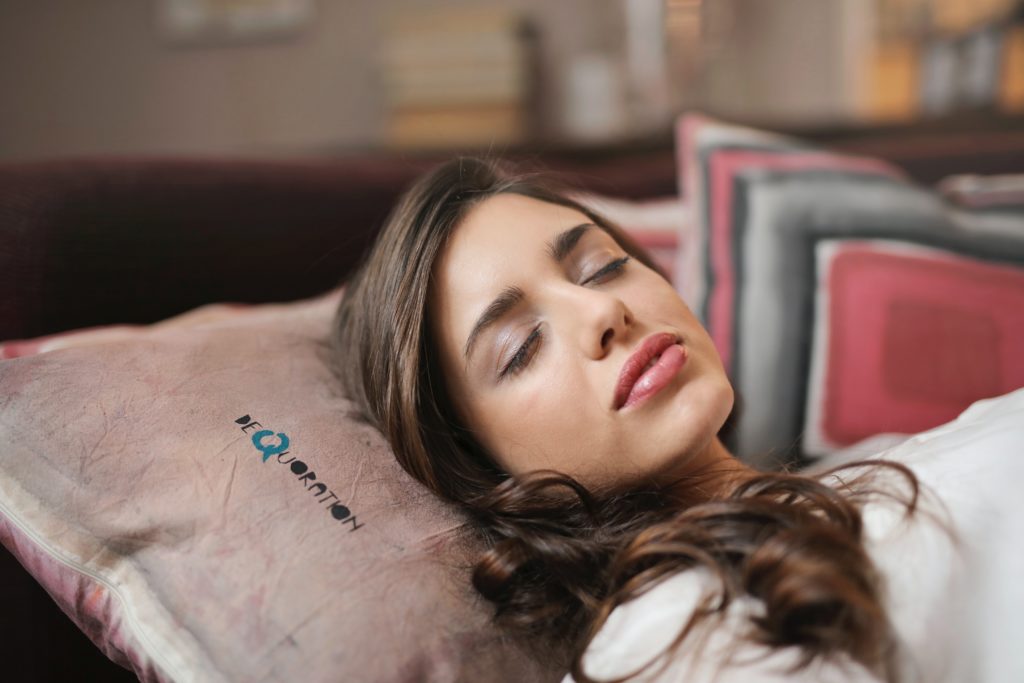
If you find it difficult to fall asleep, and after eight hours of sleep you do not feel rested, think – what surrounds you before bed? It is known that the quality of sleep depends not only on what happens in bed, but also on what you are doing before diving under the covers. From airing a room to avoiding sedatives, the world’s sleep experts have explained what affects a person’s ability to rest and shared basic rules to help you get a good night’s sleep.
1. Going to bed earlier is not a waste of time
Many people think that you need to go to bed at a certain time, which sometimes you need to wait, but the truth is that you need to prioritize your need to sleep: if you like to go to bed early, then do so. “There is a belief that you need to stay up longer,” says Dr. Michael Grandren, director of the Department of Sleep and Health at the University of Arizona. “We feel like we are running out of time during the day, and by staying up longer, we feel like we can do more and better. But scientific evidence suggests otherwise. ”
Going to bed too late affects our efficiency and productivity, because when you go to bed earlier or sleep a little longer, you can complete the same number of tasks much faster.
2. Slow down before bed
When you spend all day behind the screen and stress reaches sky-high levels, it’s no wonder you find it difficult to fall asleep. Therefore, it is important to make sure that you have enough free time to rest before bed to distract yourself from the past day and everything related to it. “Make sure you have time to slow down and distract yourself — some need half an hour, some take longer. This does not mean that you have to sit on the couch for half an hour and meditate. It is enough to do what helps to relax and distract you personally, ”says Dr. Gardner. In addition to dimmed lights to tell the cells of the body that it is time to rest, any calming activity to slow the body and mind will help, be it breathing, stretching, or just doing nothing, to avoid any stimulation. It’s also worth turning off your phone. “There is a lot of pressure and constant movement in our life, so it is very important to give yourself time to relax, and this is not just turning off the light.”
3. Do not stay in bed when it is difficult for you to fall asleep.
Sleep experts unanimously argue that when attempts to fall asleep fail – or you wake up in the middle of the night and can’t close your eyes – this is a telltale sign of getting out of bed. “By lying awake in bed, you turn it into an uncomfortable place that is associated with anxiety, constant thinking and not being able to find a comfortable position,” explains Dr. Gardner. “Over time, the bed becomes a symbol of something negative, not relaxing.” Therefore, when you are awake, you need to move your body and mind out of the situation.
4. Be mindful of the environment in which you sleep
In addition to a dark and cool room (colder temperatures lower your body temperature by signaling your brain to sleep), make sure the clothes you sleep in are suitable for good sleep. “I believe that the best night’s sleep depends on what you and your bed are wearing,” says Jessica Mason, founder of Piglet. “Natural, breathable and absorbent fabrics like linen and merino wool are great at helping regulate body temperature, which in turn helps us sleep soundly.” Linen is a fabric that is suitable for sleeping all year round, as its long fibers allow air to circulate, which makes the fabric breathable. At the same time, linen keeps you cool when you are hot and warm when you are cold.
5. Sleepwear
By the way, about clothes! Are you sleeping in something or naked? Studies show that if you like to sleep naked, then you are more likely to get enough sleep than those who sleep in their clothes. “The body loves to keep cool when falling asleep and to maintain sleep. Pajamas can keep you warm, especially in warm weather, which can interfere with the regulation of body temperature and reduce the quality of sleep. ” If you do want to wear pajamas, choose fabrics that allow natural airflow and do not interfere with your internal temperature control mechanisms, such as cotton.
6. Stop obsessing over 8 hours of sleep
“One of the most common sleep myths is that you need eight hours to get a good night’s sleep,” says Dr. Gardner. “But it doesn’t really matter whether you get seven or eight hours of sleep, and it doesn’t have to be perfect to be considered good.” Dr. Gardner advises sleeping seven to eight hours a night: most of your sleep should be in your biological “night,” but this time can also be compensated for by daytime sleep. He also adds that it’s not always a bad thing to wake up tired and overwhelmed, as you are most likely experiencing sleep inertia, which most often lasts about 10 minutes.
7. Avoid sedatives if possible.
Avoid sedatives and melatonin for supplements that help relax your body and promote health. Melatonin affects the circadian clock and is often misused. “It doesn’t address sleep problems in general, nor does it help insomnia specifically,” says Dr. Gardner, explaining that many medications use either mild sedatives that promise too much or sedatives that make you wake up with a feeling of lethargy and “hangover”.
“The sedatives make you feel more tired during the day, while most people want to be more productive and energized during the day. Therefore, taking such drugs, on the contrary, worsens the state of fatigue that you wanted to cope with ”. Instead, Gardner recommends looking for antioxidant and anti-inflammatory supplements that promote relaxation and promote healthy sleep.




